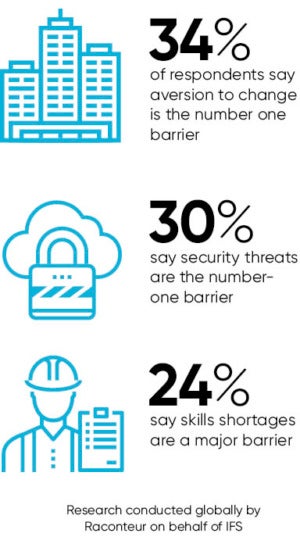 Flagship projects such as London’s Crossrail represent the UK construction industry at its best. When we look at what’s happening in the industry, everyone is talking about Crossrail. It is a fantastic project, 26 miles of tunnelling beneath London, showcasing the UK construction industry and the BIM (building information modelling) process.
Flagship projects such as London’s Crossrail represent the UK construction industry at its best. When we look at what’s happening in the industry, everyone is talking about Crossrail. It is a fantastic project, 26 miles of tunnelling beneath London, showcasing the UK construction industry and the BIM (building information modelling) process.
However, we are not the only ones doing this. Turkey, for example, has built an underwater tunnel 47 miles long, China has the Three Gorges Dam and the United Arab Emirates has a 745-mile-long national railway network.
The UK has done a lot of work to build standards for BIM, led by government, to make the construction industry more efficient and competitive globally. The rest of the world is looking at the UK and taking those standards, but will they buy more construction from us? In many ways the UK construction industry is very insular. It needs to think more globally and, fundamentally, look at how it operates.
Culture has a significant impact on where the industry is today. Take technology, for example. Construction is lagging behind other industries in adopting technology, maybe because the industry is still dominated by financial and commercial management, not yet engaged enough with technology-led opportunities to enhance their function. Many companies still run their entire business on Microsoft Excel. They know they are behind the times, but feel comfortable using Excel spreadsheets.
Another cultural influence is the industry’s reliance on quantity surveyor methodologies. This is a very UK-centric phenomenon seen in few countries beyond the UK and British colonies. This has to impact our export potential. There is huge resistance to change, but are these methodologies still the best ones? Why don’t we have a standard way of working across the globe, as happens in the oil and gas sectors? We should at least be looking at this.
Digital technology can be an enabler of global growth, efficiency and cost reduction, and BIM is the platform for the digital revolution. If you have a BIM-based model, you can visualise your asset and know what it will look like before you start building it. BIM not only allows for improved efficiency of design, construction and operation of an asset, it also enables longer-term performance and cost benefits to be considered, designed in and measured across the asset’s whole life cycle.
As a specialist in project and asset life cycle, this is a key area for IFS because more than half of what the construction industry actually does is about asset management and it encompasses every single industry sector. BIM is effectively a data asset through every stage of its life; when the asset is handed over to the owner or operator, it is handed over as a digital set of data.
While the mandated use of BIM for government-funded projects such as Crossrail certainly acts as a catalyst, it is still seen by many as a compliance issue, with contractors more concerned about what they need to do to get their BIM badge than its benefits for the long-term future of their business. This may sound like a Utopian view, but the reality is by embracing BIM and other new technologies, and by changing the way they run their business, their future survival is far more assured through saving money and the additional potential catalyst of efficiency-led growth.

BIM is massively important to the digital journey of the construction industry, but adoption needs to speed up if we are to achieve our competitive potential on a global basis.
We also need to be more global in our thinking. Out of the top 100 global construction companies, twenty six are based in China, sixteen in the United States, seven in Spain and the UK has just one. At one large Spanish construction firm I visited recently, 80 per cent of its business was coming from outside Spain. No UK construction company comes close in terms of overseas business. We are insular, we are risk averse and we should be learning from global thinkers like Spain, and waking up to the reality of what might happen when companies from other countries start moving into the UK market.
Global competition presents many challenges for UK construction, however a bigger threat, or potential opportunity, could lie much closer to home and not necessarily from within the sector. We are seeing a growth in the building of modular homes as one mechanism to address the housing crisis. One new entrant to this market is Legal and General Homes, essentially a finance company. They are setting out to build modular houses in a factory and deliver them to the site, fully fitted out. This convergence of construction and manufacturing industries is speeding up processes, improving quality, and reducing costs and time. Inevitably more industry sectors are likely to get involved in what has the potential to be the UK construction sectors “Uber moment”.
Another important trend in construction is the adoption of servitisation. Clients – the asset owners – don’t just want construction firms to build the asset, they want them to provide the services required to maintain their assets over their entire life cycle.
If you are a construction company today, you need to think about this because tomorrow you might be a manufacturing company or an asset maintenance service provider. This “contracting for outcomes” initiative, backed by the government, moves the sector towards an entire life-cycle management approach. Building and managing hospitals measured by patient wellbeing, university campus construction based on students’ success measures are two potential outcomes of the new way of thinking some are already adopting, having learnt, in part, from the global aviation sector whose measures in construction of an aircraft are now often based on the number of flying hours in service and not at the point the new asset is delivered to the airline.
At IFS we have the technology systems, platforms and expertise that are already helping construction companies through the convergence or servitisation journey to becoming a hybrid organisation. This is the future of construction and UK companies have a great opportunity to embrace that future now.
For more information please visit IFSworld.com/times or call 01494 428 900




